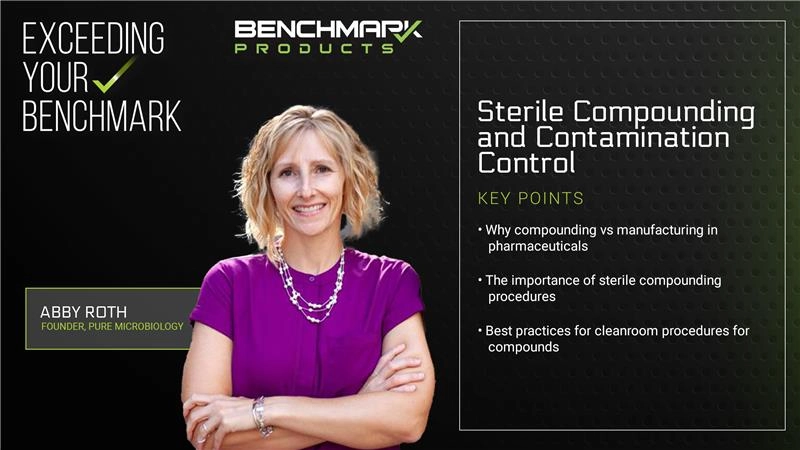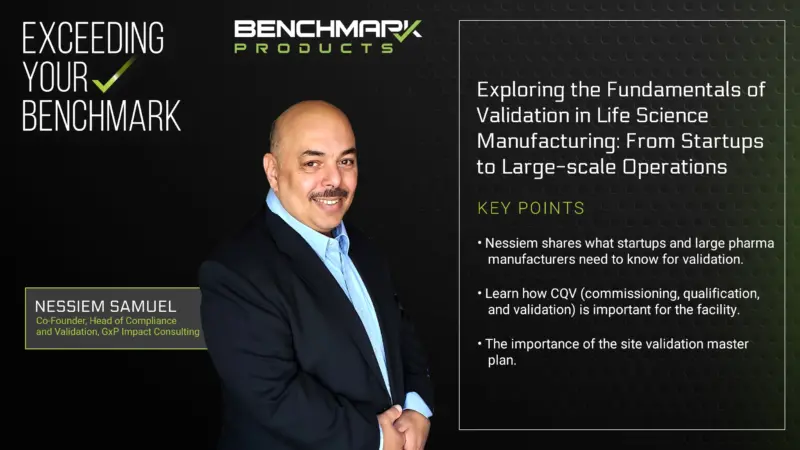Revolutionizing the Audit Process: Advancements in Supplier Assessments Within the Pharmaceutical Sector
Pharmaceutical companies invest significant resources in research and development to discover new drugs and therapies and improve existing ones. This involves rigorous testing, clinical trials, and obtaining regulatory approval before a drug can be sold.
Government agencies, such as the Food and Drug Administration (FDA) in the United States, oversee the approval process and conduct regular inspections of manufacturing facilities to ensure compliance with regulations.
But what are some of the most significant challenges facing the pharmaceutical industry today, and how are companies addressing them?
On today’s episode of the Exceeding Your Benchmark, host Michelle Dawn Mooney speaks with Jim Fries, the Chief Executive Officer of Rx-360, to discuss some of the key benefits of using supplier evaluations and how they can help pharmaceutical companies to ensure supply chain integrity and compliance with regulations.
Jim Fries’ core piece of advice: prioritize compliance and quality in all aspects of the pharmaceutical manufacturing process. This includes investing in robust quality systems, conducting regular audits, and seeking licensable audit reports from independent third-party auditors. By doing so, manufacturers can ensure that their products are safe and effective and meet regulatory requirements.
“We have the ability as a non-profit to license a report out to other pharmaceutical organizations in the industry that may be using that same supplier and try to double-check authenticity,” said Fries.
Michelle and Jim also discuss…
- What are the benefits and steps in obtaining a licensable audit report for pharmaceutical manufacturers, and how does it aid in regulatory compliance and product quality assurance?
- In what ways does Rx-360’s collaboration with Benchmark Products enhance supply chain security and quality within the pharmaceutical industry?
- How can pharmaceutical manufacturers leverage licensable audit reports to gain a competitive advantage in the industry and improve patient outcomes?
“It’s a wonderful way for pharmaceutical organizations to license with their supplier to ensure that safety and quality information on that particular facility is distributed amongst the pharmaceutical community where we are also actively collaborating,” said Fries.
James M. Fries, CEO at Rx-360, has worked with teams at OrthoForge, VNUS Medical, Vascular Insights, etc. He received his B.A. in Organizational Behavior and his MBA from Eastern University in St. David’s, PA.



